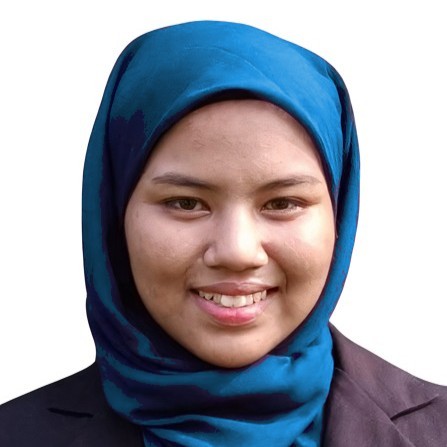BUDI95: A New Chapter in Malaysia’s Fuel Subsidy System
- Nur Zafira Shamsol Baharin

- Oct 17, 2025
- 4 min read
By Nur Zafira Shamsol Baharin
The BUDI 95 subsidy was introduced earlier this month — here’s what it means for Malaysia.

Do you still remember when the MySARA claim system went down? Customers couldn’t complete payments, trolleys full of goods were abandoned, and supermarket staff had to return every item to its shelf. It was a frustrating experience for everyone — customers, workers, and store managers alike.
That incident revealed how dependent we’ve become on digital systems. As Malaysia now transitions into a new era of targeted fuel subsidies, the question arises: how ready are we for change? The launch of BUDI MADANI RON95 (BUDI95) marks one of the country’s most significant steps toward a more efficient and equitable subsidy system, one that seeks to ensure aid goes to those who truly need it.
From Blanket Subsidy to Targeted Support
For decades, Malaysians have enjoyed one of the lowest fuel prices in Southeast Asia, thanks to blanket subsidies. Everyone, from citizens, non-citizens, companies paid the same subsidised price for RON95 petrol. While this appeared fair on the surface, it came at a heavy cost.
The system’s generosity opened the door to exploitation. Foreign workers, tourists, and large corporations enjoyed the same benefits as lower-income Malaysians. Fuel smuggling across borders became lucrative because neighbouring countries paid higher prices. The government spent billions each year, but the subsidies didn’t always reach those who needed them most.
Recognising these weaknesses, the government decided it was time for change, a shift from blanket subsidies to targeted assistance. The goal: to protect the rakyat while making subsidies more fiscally sustainable.

The Mechanics of BUDI95
Beginning 30 September 2025, the BUDI95 mechanism took effect. Under this new structure:
Malaysian citizens continue to enjoy a subsidised price of RM1.99 per litre, a symbolic reduction announced by Prime Minister Datuk Seri Anwar Ibrahim.

Balancing Fairness and Practicality
Industry response to BUDI95 has been mixed, but generally optimistic. Many recognise that targeted subsidies are a necessary evolution.
For instance, Jose Rizal, chief activist of the Malaysian e-Hailing Association, expressed relief that full-time drivers are not restricted to the 300-litre quota. With more than 200,000 e-hailing drivers nationwide, this exemption ensures their livelihoods aren’t disrupted. Similarly, Mohd Azril Ahmat, president of the Grab Drivers Malaysia Association, noted that while 300 litres suffices for most private users, it would be inadequate for those who spend the entire day on the road.
Still, concerns linger over potential loopholes. There’s a risk that unscrupulous individuals could exploit exemptions or resell subsidised fuel. Striking a balance between supporting livelihoods and preventing abuse will require vigilant monitoring.

Financial Sustainability and Reinvestment
One of the strongest arguments for BUDI95 lies in its fiscal sustainability.
The Ministry of Finance (MOF) estimates that maintaining RON95 subsidies at RM1.99 per litre, compared to the market price of RM2.60, will still cost around RM11 billion annually. However, by ending blanket subsidies, the government expects to save RM2.5 to RM4 billion each year.
These savings are more than just numbers; they’re being redirected into targeted assistance programmes like the Rahmah Cash Contribution (STR) and Rahmah Basic Contribution (SARA). This ensures that government funds are channelled to households that need help the most, rather than spread thinly across all income groups.

Implementation Challenges and Adjustments
As with any large-scale policy shift, challenges are inevitable. Deputy Prime Minister Datuk Seri Ahmad Zahid Hamidi acknowledged that technical and logistical issues have surfaced, from verification delays to outdated MyKad cards.
To smooth the rollout, the National Registration Department (NRD) now offers free replacements for faulty MyKads during this transition phase. Coordination among agencies and communication with the public remain essential to ensure that no one is left behind.
These early hiccups highlight the importance of robust systems and contingency planning. A well-designed digital infrastructure will be key to sustaining public trust in BUDI95.

What It Means for Malaysians
For millions of citizens, BUDI95 represents a more just and future-ready approach to subsidies. It ensures that public funds are protected, fuel smuggling is curbed, and ordinary households continue to receive meaningful support in managing living costs.
The reform may bring some initial inconvenience, but its long-term benefits such as fiscal savings, better targeting, and reduced leakage can far outweigh the transition pains.

Conclusion
Malaysia’s move from blanket subsidies to BUDI95 is more than a policy change, it’s a statement of intent. It reflects the government’s effort to balance efficiency with equity, ensuring that every ringgit spent truly benefits Malaysians who need it most.
While implementation challenges must be addressed carefully, the foundation has been set for a fairer, smarter, and more sustainable subsidy system. The days of one-size-fits-all fuel pricing are over and, in their place, Malaysia is building a model that rewards fairness without compromising accessibility.
About The Author
Nur Zafira Shamsol Baharin is part of the Planning & Solutions team at Wealth Vantage Advisory. As a financial paraplanner, she assists licensed financial planners in developing comprehensive financial plans for clients, from strategy formulation to actionable steps that help clients achieve their financial goals. Zafira holds the Islamic Financial Planning (IFP) certification and brings over 3 years of experience in the financial planning industry.


Comments